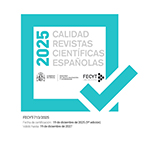Revisiting the two Cambridge schools for the current controversy
Resumen
La medición del capital ha generado grandes controversias entre la Universidad de Cambridge (Gran Bretaña) y el Massachusetts Institute of Technology de Cambridge (Estados Unidos de América). El debate tuvo lugar principalmente durante la edad dorada del capitalismo y no quedó totalmente resuelto, aunque, ciertamente, en la actualidad es frecuente que se estudie Economía sin prestar atención al mismo. En definitiva, se trata de una cuestión inconclusa, donde ni siquiera parece que actualmente haya consenso en admitir cuáles fueron sus principales resultados. El problema aparece cuando aceptamos que las inversiones posibilitan consumos futuros y, por consiguiente, equiparamos estos activos de capital con los bienes/productos. Por su parte, la escuela británica defendió que el capital debe ser entendido como un instrumento que intenta salvaguardar valor económico. De otro lado, la vertiente norteamericana consideró que el capital debe ser visto como un instrumento de un valor económico que varía en función de las leyes del libre mercado.
Descargas
Descarga artículo
Licencia
La revista Iberian Journal of the History of Economic Thought, para fomentar el intercambio global del conocimiento, facilita el acceso sin restricciones a sus contenidos desde el momento de su publicación en la presente edición electrónica, y por eso es una revista de acceso abierto. Los originales publicados en esta revista son propiedad de la Universidad Complutense de Madrid y es obligatorio citar su procedencia en cualquier reproducción total o parcial. Todos los contenidos se distribuyen bajo una licencia de uso y distribución Creative Commons Reconocimiento 4.0 (CC BY 4.0). Esta circunstancia ha de hacerse constar expresamente de esta forma cuando sea necesario. Puede consultar la versión informativa y el texto legal de la licencia.
La revista Iberian Journal of the History of Economic Thought no cobra por tasas por envío de trabajos, ni tampoco cuotas por la publicación de sus artículos.









